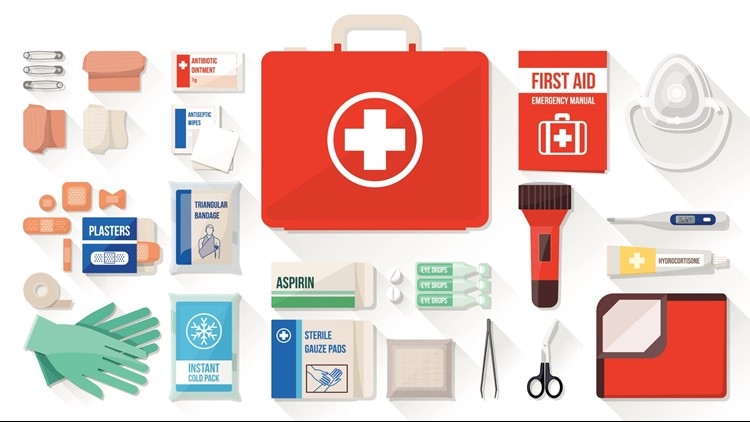Dr. Comilla shares nine first aid and potentially life-saving tips everyone should know.
- Set up your emergency contact and medical information on your cell phone. Click on the “Emergency” on the lock screen for the Android or go to the Health app on the iPhone and fill out your medical id (which includes basic info, medical condition, medications and emergency contacts).
- Have a nosebleed? Make sure you are putting pressure on the nostrils themselves (which is where the blood vessels are that usually bleed). Put as much pressure as you can and lean forward. If you can put an ice pack on it, that will help constrict the blood vessels too.
- Best way to get out a stinger/splinter? Use your fingernail or a credit card to scrape it out. When it is mostly out, then pull with a tweezer.
- F-A-S-T (Facial drooping, arm won't work, speech slurred, time to get to ER) are the signs of a possible stroke. Call 9-1-1 immediately!
- Knocked out an adult tooth? Put it in a glass of milk, or back in the tooth socket where it came from. This keeps the tooth potentially savable so that it can be reattached.
- When can you glue a wound together (rather than stitches)? On the face, areas without a lot of traction that are not gaping and non-hairy areas are best.
- Child swallowed a coin? Most of the time, these will pass. You should go to the ER to make sure it is in the esophagus and not in the airway. If it is in the stomach, then you can be on “poop watch” and wait for the coin to make its appearance in your toilet.
- Bleeding wound? Wash it out under water from the sink for a few minutes and apply pressure. You don’t need sterile water. For a big gaping wound from an artery, apply pressure. If you have a commercial grade tourniquet, apply it. Get to the ER immediately.
- Learn CPR/how to use an AED. It takes just a few minutes to learn. Both are simple and easy to do to use. And, both can drastically improve the chance of surviving a cardiac arrest.



